-

Tech Agnostic | An Excerpt from the 2024 Porchlight Big Ideas & New Perspectives Book of the Year
The 2024 Big Ideas & New Perspectives Book of the Year is Tech Agnostic: How Technology Became the World's Most Powerful Religion, and Why It Desperately Needs a Reformation by Greg Epstein, published by MIT Press.
-

The Vagina Business | An Excerpt from the 2024 Porchlight Creativity & Innovation Book of the Year
The 2024 Creativity and Innovation Book of the Year is The Vagina Business: The Innovative Breakthroughs That Could Change Everything in Women's Health by Marina Gerner, published by Sourcebooks.
-

Higher Ground | An Excerpt from the 2024 Porchlight Leadership and Strategy Book of the Year
The 2024 Leadership and Strategy Book of the Year is Higher Ground: How Business Can Do the Right Thing in a Turbulent World by Alison Taylor, published by Harvard Business Review Press.
-
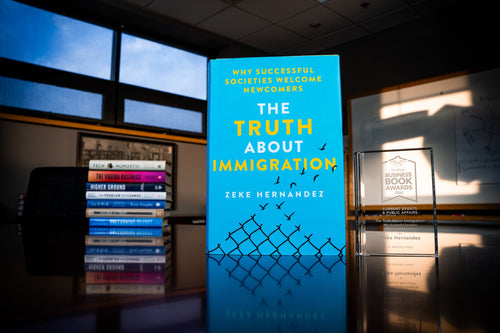
The Truth About Immigration | An Excerpt from the 2024 Porchlight Current Events & Public Affairs Book of the Year
The 2024 Current Events & Public Affairs Book of the Year is The Truth about Immigration: Why Successful Societies Welcome Newcomers by Zeke Hernandez, published by St. Martin's Press.
-
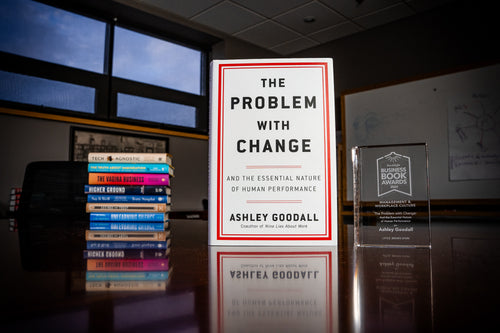
The Problem with Change | An Excerpt from the 2024 Porchlight Management & Workplace Culture Book of the Year
The 2024 Porchlight Management & Workplace Culture Book of the Year is The Problem with Change: And the Essential Nature of Human Performance by Ashley Goodall, published by Little, Brown Spark.
-
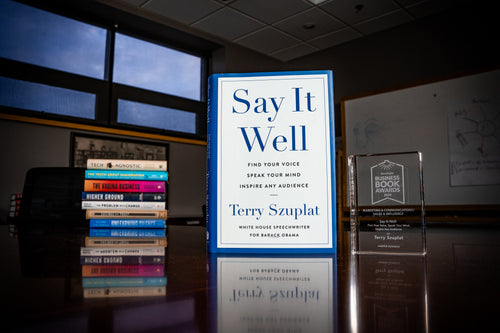
Say It Well | An Excerpt from 2024 Porchlight Marketing & Communications/Sales & Influence Book of the Year
The Marketing & Communications/Sales & Influence Book of the Year is Say It Well: Find Your Voice, Speak Your Mind, Inspire Any Audience by Terry Szuplat, published by Harper Business.
-
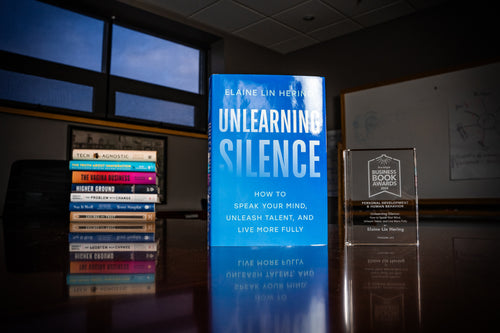
Unlearning Silence | An Excerpt from the 2024 Porchlight Personal Development & Human Behavior Book of the Year
The 2024 Personal Development & Human Behavior Book of the Year is Unlearning Silence: How to Speak Your Mind, Unleash Talent, and Live More Fully by Elaine Lin Hering, published by Penguin Life.
-
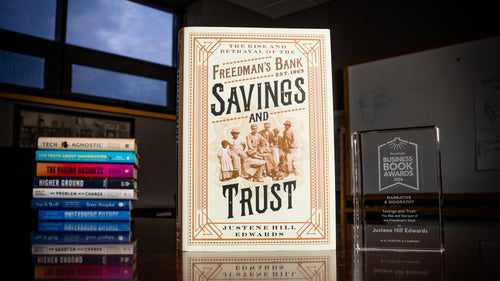
Savings and Trust | An Excerpt from the 2024 Porchlight Narrative & Biography Book of the Year
The 2024 Narrative & Biography Book of the Year is Savings and Trust: The Rise and Betrayal of the Freedman's Bank by Justene Hill Edwards, published by W. W. Norton & Company.
-
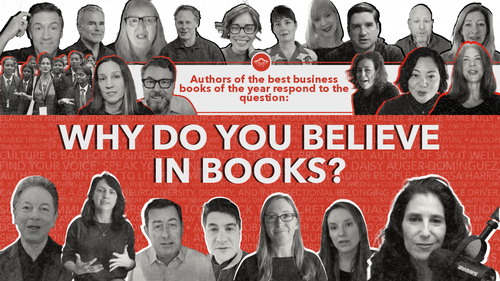
The authors of the best business books of 2024 respond to "Why do you believe in books?"
For the second year in a row, Porchlight asked the authors whose books we selected as the best business books of 2024 the question, "Why do you believe in books?" Their responses were thoughtful, sentimental, reflective, and forward-looking.
-

The 2024 Jack Covert Award for Contribution to the Business Book Industry
Matt Holt is the recipient of the 2024 Jack Covert Award.
-
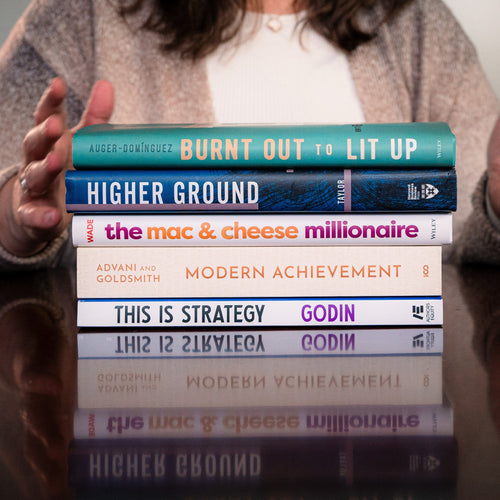
The Best Leadership & Strategy Books of 2024
Each of the top five leadership and strategy books for 2024 spoke to and respected a different type of leader, and each will help you discover what kind of leader you want and need to be.
-

The Best Management & Workplace Culture Books of 2024
Modern organizations are plagued with performative work and confusing policy, much of it the result of poor management and a lack of clear communication. At a time when so much attention is being given to how AI will affect our work, we found four books that focus on what humans can do to build better workplaces.
-
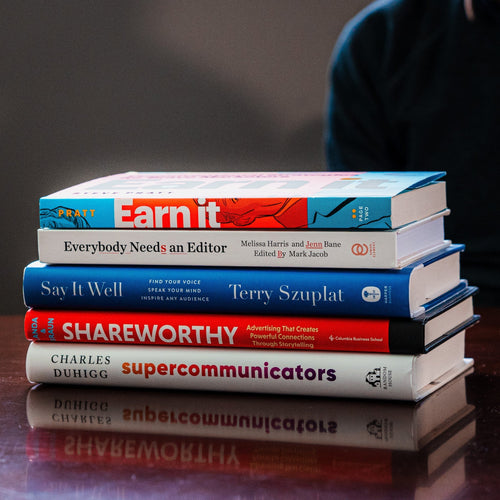
The Best Marketing & Communications/Sales & Influence Books of 2024
Attention is the world’s most valuable resource, and learning how to earn it—how to seize and hold someone’s attention in your writing, while speaking in public, or in the brief moment an ad is in front of them, and how to offer it back when talking in person with others—is critical for every conversation and every company. These five books can help.
-
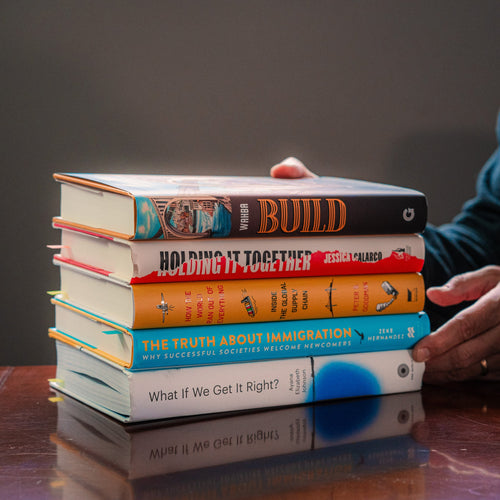
The Best Current Events & Public Affairs Books of 2024
The greatest challenges we face today offer some of our greatest opportunities for growth. We just need the civic imagination and collective will to seize them, to build new things and embrace new approaches. The best Current Events & Public Affairs books of 2024 all addressed that need in some way.
-
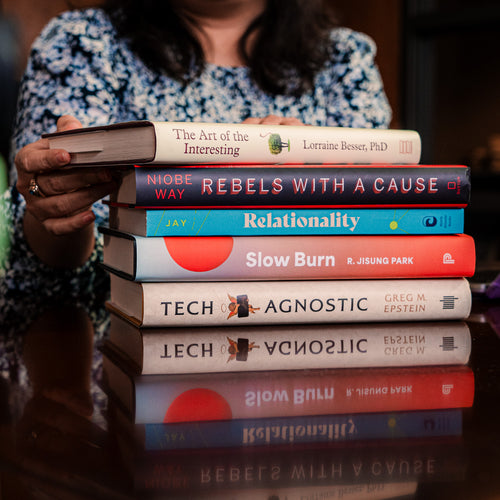
The Best Big Ideas & New Perspectives Books of 2024
Humans are social beings designed for connection.
-
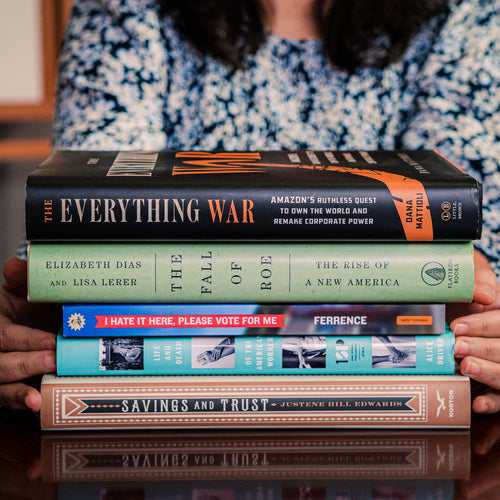
The Best Narrative & Biography Books of 2024
These five books reveal overlooked parts of our history and the forces shaping our lives, encouraging us to confront adversity to make the world a better place.
-
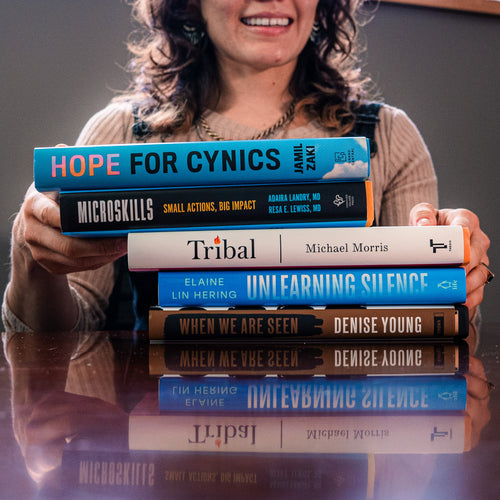
The Best Personal Development & Human Behavior Books of 2024
These books help us better understand and appreciate ourselves and one another, forcing us to take a step back and reflect on how we all need each other, not just to exist, but to succeed and flourish.
-
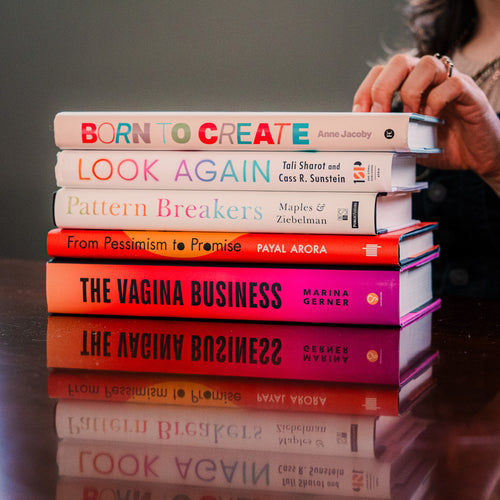
The Best Innovation & Creativity Books of 2024
With compelling voices, these books excite readers to investigate problems, acuminate ideas, and lead with an open-mind and the desire to change the world for the better.
-

The 2024 Porchlight Business Book Awards Longlist
The 40 books on this year's list of best business books provide a bastion against the tide of overwhelm that we all feel, grounding us with clear-eyed practical and practiced ways to do the work that will effectively bring positive change to our own personal and professional spaces and places.
-
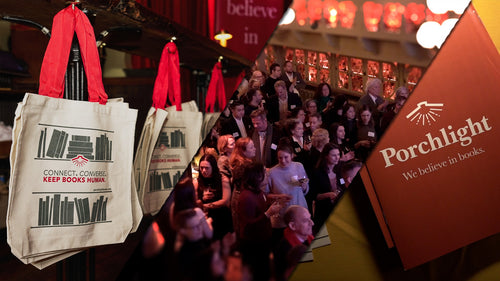
Porchlight Book Company's 2023 Publishing Industry Appreciation Party
Look back at our publishing industry appreciation party through photos and a recap video.
-
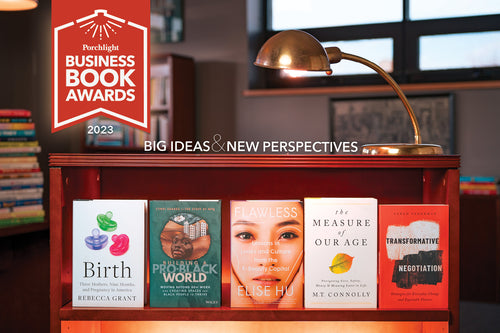
The 2023 Porchlight Business Book Awards | Big Ideas & New Perspectives
These are the books selected for the 2023 Big Ideas & New Perspectives category, curated by Porchlight's Managing Editor Jasmine Gonzalez.
-
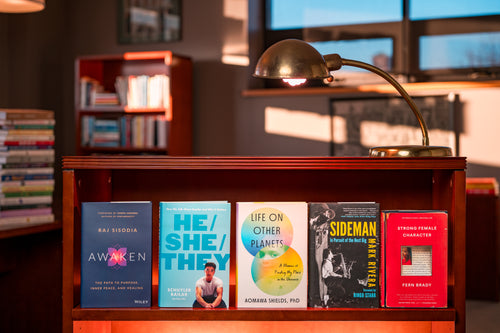
The 2023 Porchlight Business Book Awards | Narrative & Biography
These are the books selected for the 2023 Narrative & Biography category, curated by Porchlight's Managing Editor Jasmine Gonzalez.
-
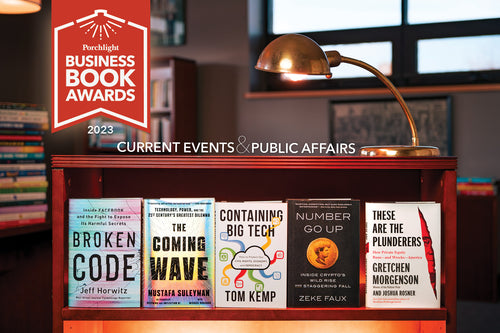
The 2023 Porchlight Business Book Awards | Current Events & Public Affairs
Looking for the year's best Current Events & Public Affairs books? Porchlight's Marketing & Editorial Director Dylan Schleicher has you, and those books, covered.
-
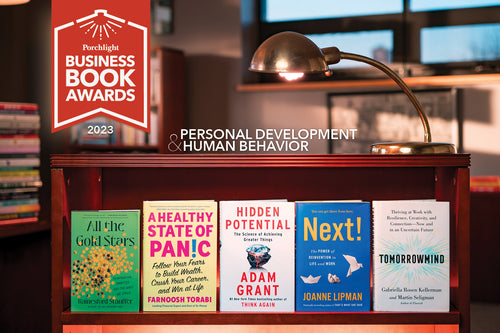
The 2023 Porchlight Business Book Awards | Personal Development & Human Behavior
None of these books are directly about happiness, but follow their advice and you'll feel a lot happier about where you are and where you're headed.
-
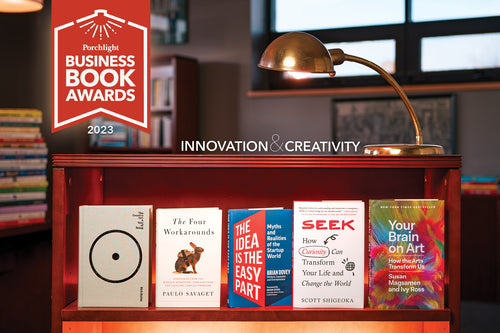
The 2023 Porchlight Business Book Awards | Innovation & Creativity
Our Creative Director Gabriella Cisneros describes how the best innovation and creativity books of 2023 connect to each other and help us readers connect to each other, too.
-
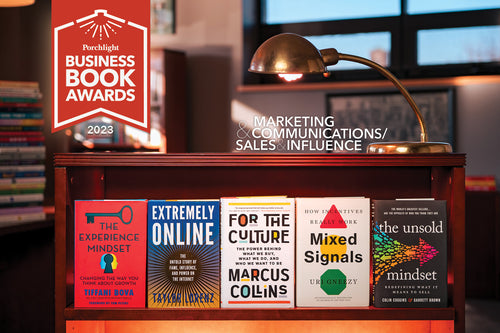
The 2023 Porchlight Business Book Awards | Marketing & Communications/Sales & Influence
Porchlight's Marketing & Editorial Director Dylan Schleicher looks at the year's best book in the Marketing & Communications/Sales & Influence category.
-
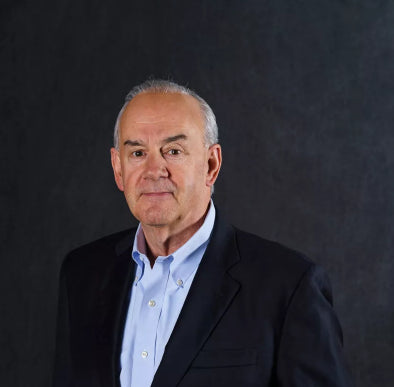
The 2023 Jack Covert Award for Contribution to the Business Book Industry
Rick Wolff is the recipient of the 2023 Jack Covert Award.
-
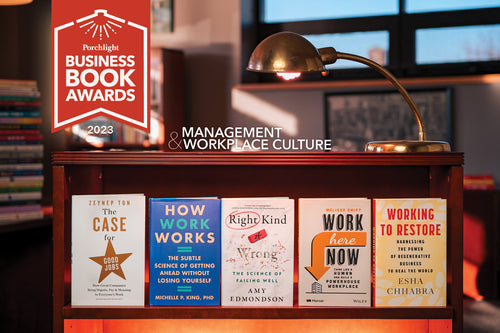
The 2023 Porchlight Business Book Awards | Management & Workplace Culture
Porchlight's Marketing & Editorial Director Dylan Schleicher takes us inside 2023's best Management & Workplace Culture books.
-
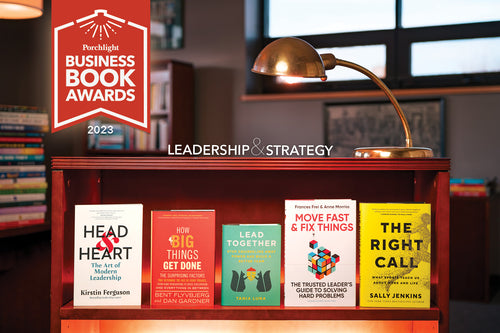
The 2023 Porchlight Business Book Awards | Leadership & Strategy
Porchlight's Managing Director Sally Haldorson dives into 2023's best books in the Leadership & Strategy category.
-

The 2023 Porchlight Business Book Awards
These 40 books spoke to us—and we believe speak to each other—in a way that furthers the conversations we need to have in the organizations we work in, the communities we live in, and the societies that shape us. With them as a guide, we can make decisions that better shape each, in turn.
-

The 2023 Porchlight Business Book Awards Call for Entries
The Porchlight Business Book Awards are now open for entries! And we are doing things a little differently this year.
-
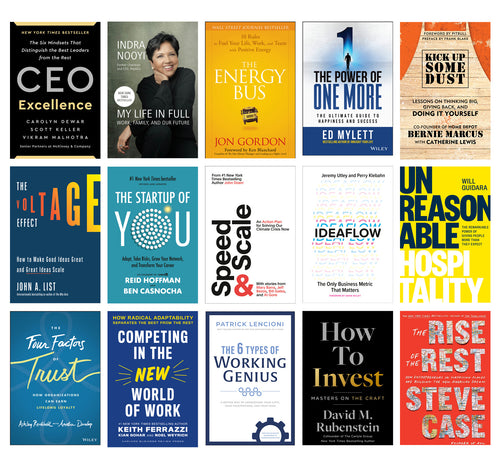
Porchlight Book Company's Bestselling Books of 2022
We love reading books, but our main purpose as a company is to get them in the hands of others.
-
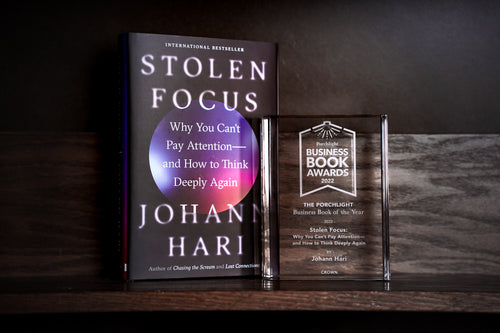
Stolen Focus by Johann Hari is the 2022 Porchlight Business Book of the Year
In one insightful instance after another, Johann Hari demonstrates the ways in which our attention is deliberately hijacked, and how to get it back.
-
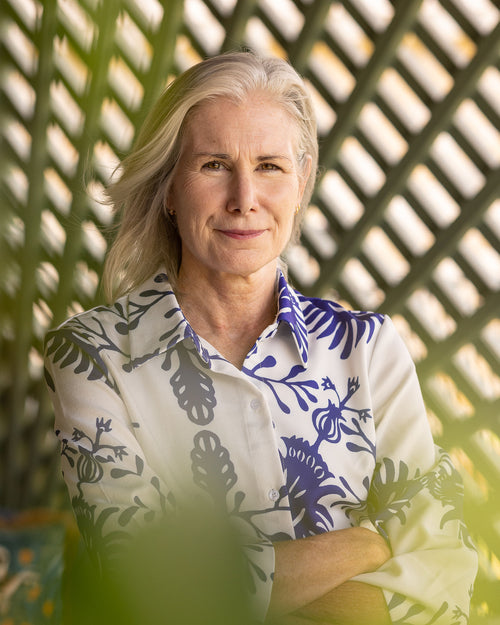
The 2022 Jack Covert Award for Contribution to the Business Book Industry
Barbara Cave Henricks is the recipient of the 2022 Jack Covert Award.
-
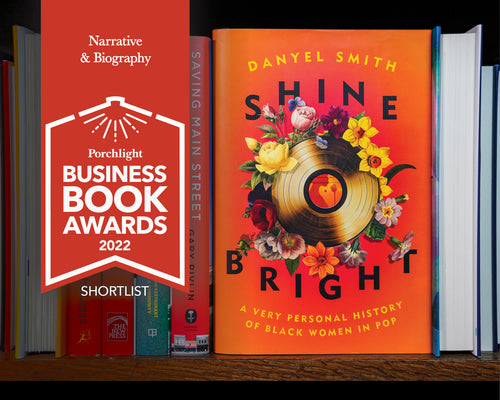
Shine Bright | An Excerpt from the 2022 Porchlight Narrative & Biography Book of the Year
The 2022 Narrative & Biography Book of the Year is Shine Bright: A Very Personal History of Black Women in Pop by Danyel Smith, published by Roc Lit 101.
-
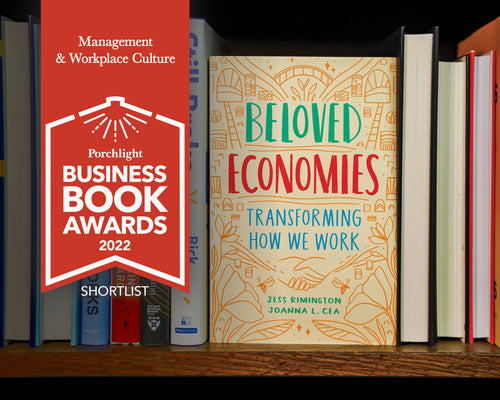
Beloved Economies | An Excerpt from the 2022 Management & Workplace Culture Book of the Year
The 2022 Management & Workplace Culture book of the year is Beloved Economies: Transforming How We Work by Jess Rimington and Joanna Levitt Cea, published by Page Two.
-
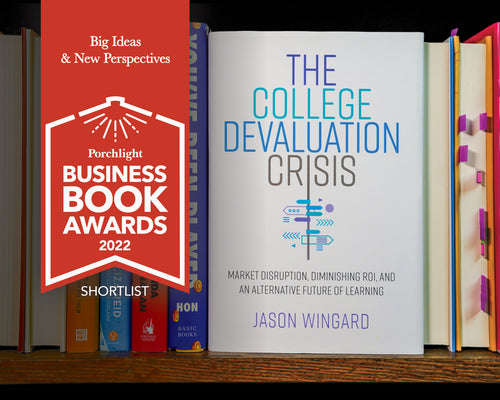
The College Devaluation Crisis | An Excerpt from the 2022 Porchlight Big Ideas & New Perspectives Book of the Year
The 2022 Big Ideas & New Perspectives book of the year is The College Devaluation Crisis: Market Disruption, Diminishing ROI, and an Alternative Future of Learning by Jason Wingard, from Stanford Business Books.
-
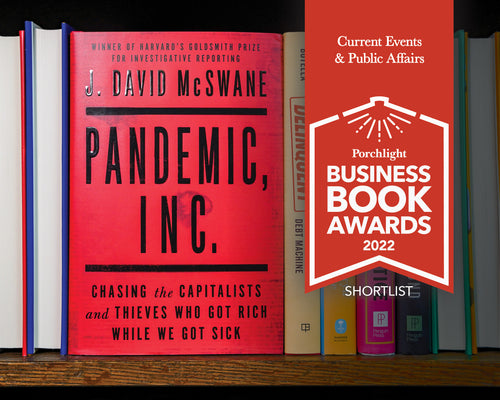
Pandemic Inc. | An Excerpt from the 2022 Porchlight Current Events & Public Affairs Book of the Year
The 2022 Current Events & Public Affairs book of the year is Pandemic Inc.: Chasing the Capitalists and Thieves Who Got Rich While We Got Sick by J. David McSwane, from One Signal Publishers.
-
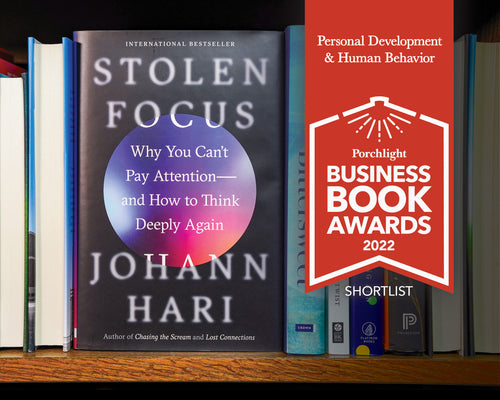
Stolen Focus | An Excerpt from the 2022 Porchlight Personal Development & Human Behavior Book of the Year
The 2022 Personal Development & Human Behavior book of the year is Stolen Focus by Johann Hari, published by Crown.
-
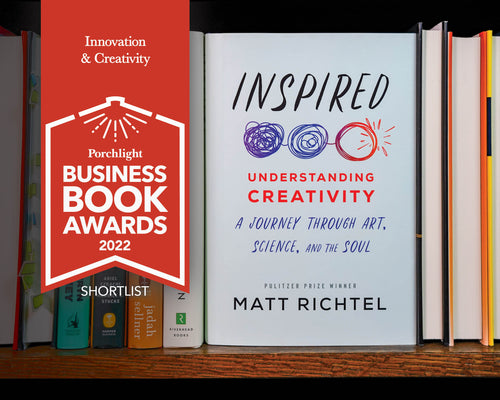
Inspired | An Excerpt from the 2022 Porchlight Innovation & Creativity Book of the Year
The 2022 Innovation & Creativity book of the year is Inspired by Matt Richtel, published by Mariner Books.
-
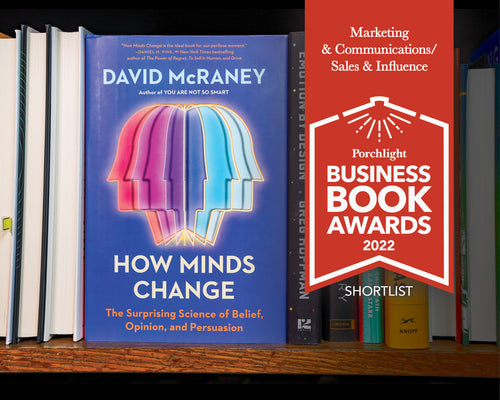
How Minds Change | An Excerpt from the 2022 Porchlight Marketing & Communications/Sales & Influence Book of the Year
The 2022 Marketing & Communications/Sales & Influence book of the year is How Minds Change: The Surprising Science of Belief, Opinion, and Persuasion by David McRaney, published by Portfolio.
-
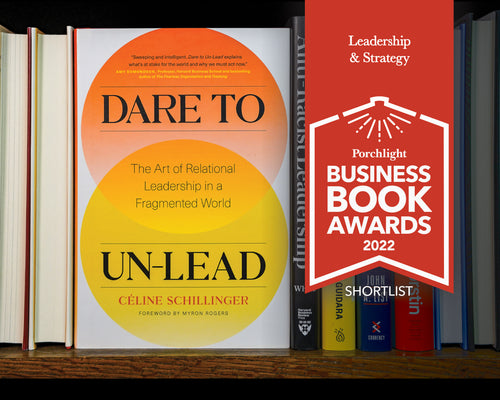
Dare to Un-Lead | An Excerpt from the 2022 Porchlight Leadership & Strategy Book of the Year
The 2022 Leadership & Strategy book of the year is Dare to Un-Lead: The Art of Relational Leadership in a Fragmented World by Céline Schillinger, published by Figure 1.
-

The 2022 Porchlight Business Book Awards Shortlist
There isn’t anywhere better to slow down, to dive deeper into things, to learn about and reflect upon the world, than in a book. The best books transcend their time and space, even as they help us define our present moment and put it in context.
-
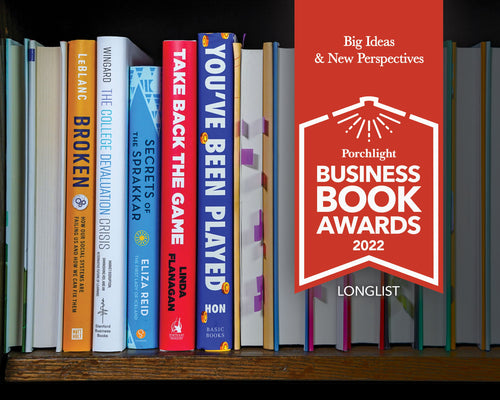
Inside the 2022 Longlist | Big Ideas & New Perspectives
When we take a look beyond our own front doors to learn from the world around us, we might find that the ideas that feel like mere pipe dreams now can—and in some places, already have—become our reality.
-
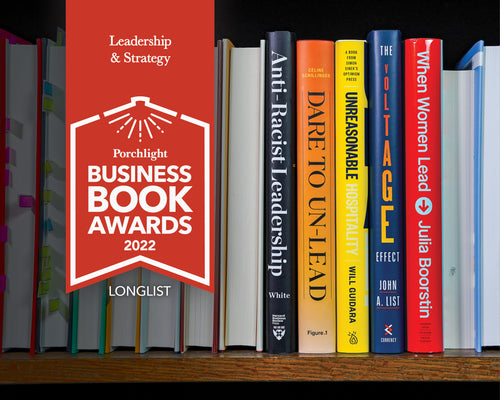
Inside the 2022 Longlist | Leadership & Strategy
Our Managing Director Sally Haldorson calls upon a short story of Raymond Carver's to help us understand why it seems so impossible, and why it's so important, to talk about leadership.
-
Inside the 2022 Longlist | Personal Development & Human Behavior
We are creatures that need guidance, love, compassion, and (we believe in) books that bring us back to considering and working on ourselves, which is what this category is all about.
-
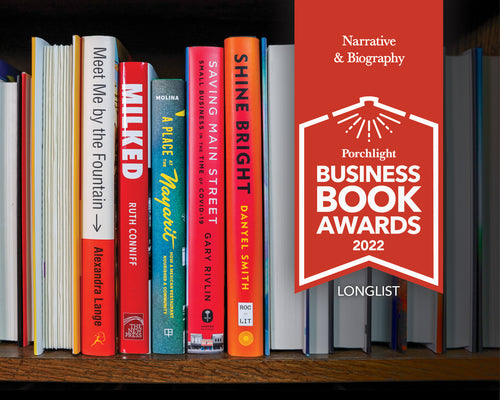
Inside the 2022 Longlist | Narrative & Biography
Like fiction, narratives and biographies can help us empathize with and even inhabit, for a brief moment in the pages of a book, the mindsets and experiences of other people. It allows us to peek into the lives of individuals, see inside organizations, and visit other places without having to leave our reading chair.
-
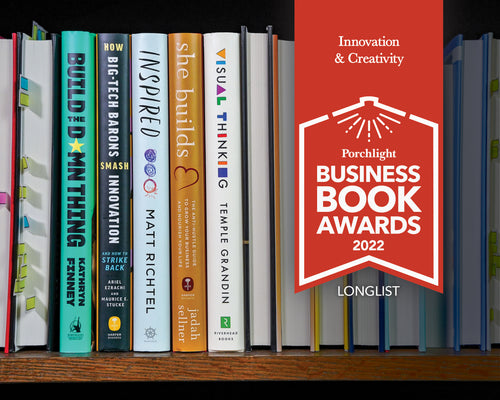
Inside the 2022 Longlist | Innovation & Creativity
These five books will prompt you to ask questions about yourself and the world around you, and it is in this inner-searching and outward observation that we will find, innovate, and create a better world for us all.
-
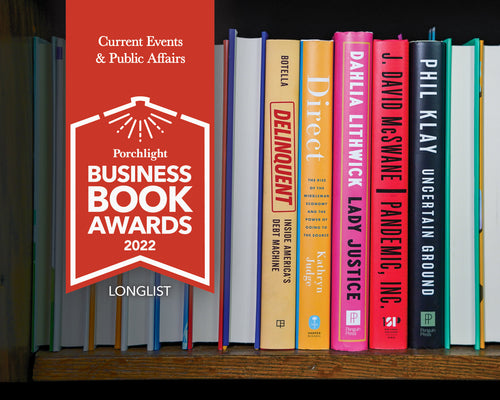
Inside the 2022 Longlist | Current Events & Public Affairs
It seems like each and every category of our awards has elements of Current Events & Public Affairs percolating within them, but that doesn't negate the need for a dedicated category. These are the five best books in that space this year.
 Both The Economist and BusinessWeek have reviews of Ahead of the Curve: Two Years at Harvard Business School in their latest issues. Auspiciously published on Harvard Business School's 100th anniversary, Ahead of the Curve is Philip Delves Broughton's insider account of life at HBS. Broughton is not your typical business student, however. Entering HBS as a 32 year-old father of two, he came from a journalism background, having been the Paris bureau chief of the London Daily Telegraph.
Louis Lavelle of BusinessWeek (and author of The Best B-Schools) writes:
Both The Economist and BusinessWeek have reviews of Ahead of the Curve: Two Years at Harvard Business School in their latest issues. Auspiciously published on Harvard Business School's 100th anniversary, Ahead of the Curve is Philip Delves Broughton's insider account of life at HBS. Broughton is not your typical business student, however. Entering HBS as a 32 year-old father of two, he came from a journalism background, having been the Paris bureau chief of the London Daily Telegraph.
Louis Lavelle of BusinessWeek (and author of The Best B-Schools) writes:
















































